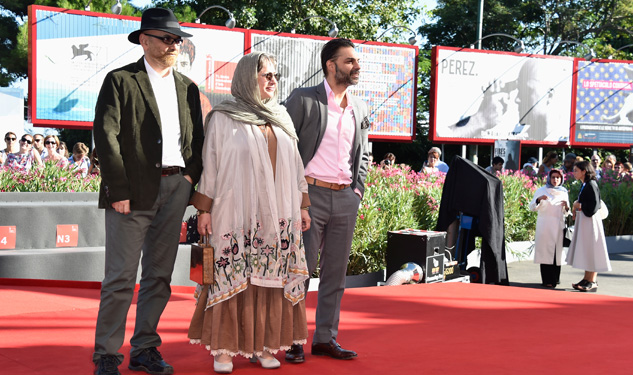
- Industry
2014 Venice International Film Festival – Day 2
It’s fair to say the Venice Film Festival is one of cinema’s grand dames. The festival which is in its 71st edition at the Lido, is Europe’s oldest, and with Cannes, probably one of the world’s most prestigious. These days other festivals like Toronto hold more award-season clout and may pack more market punch, but it’s hard to beat Venice for old-world charm and sheer sense of elegant prestige.
Sure, over the years concessions have been made to “big ticket” Hollywood fare, but the mission, as Biennale president Paolo Baratta stated yesterday while introducing Korean director Kim-Ki Duk’s film One on One, remains to “distill real knowledge, and ultimately what we call culture, from the maelstrom of information our world produces” – those lofty ideals are abetted by the setting, in one of the world’s most genteel cities.
Last year, aside from eventual Oscar- and Golden Globe-winner Gravity, the festival premiered Stephen Frears’ Philomena, Paul Schrader’s The Canyons, Gia Coppola’s Palo Alto, Hayao Miyazaki’s The Wind Rises and Jonathan Glazer’s Under The Skin. This year Venice programmer Alberto Barbera seems to have assembled a similarly eclectic (and unpredictable) slate. The 56 films (55 world premieres) presented here vary from probable awards contenders to art house films screened in the Orizzonti, Settimana della Critica and Giornate degli Autori sections. The 20 film-strong American contingent (second in size after the Italian offering) includes festival regulars like James Franco (The Sound and The Fury) and Barry Levinson (The Humbling) as well as directors that are returning after years-long hiatus like Peter Bogdanovich (She’s Funny That Way).
Speaking of Venice favorites, Kim Ki-Duk who was the Golden Lion winner two years ago with Pietà and present here last year with Moebius is back at the Lido again with One on One, a typically dark and violent revenge yarn in which the murderers of a young school girl are hunted down and punished by an enigmatic paramilitary group. In his presentation the director framed the film as a metaphor for the corruption “corroding my country”. In particular, he explained the film was inspired and dedicated to the victims of the “Sewol” shipwreck, which earlier this year caused the death of hundreds of students, making the film sort of a sublimated collectible revenge fantasy against those responsible for the accident that scarred South Korea, many of whom have not yet been held accountable.
Venice is also a showcase for European film, like Briton Guy Myhill’s debut feature The Goob. Myhill is a former documentary maker that applies his considerable skill to a coming-of-age story set in the farmlands of Norfolk, in the East of England, a blue-collar countryside with enough doublewide trailers and hoedown barbeques to be plausibly mistaken with the hills of Kentucky or Louisiana’s Bayou. And its tale of family dysfunction also recalls some American counterparts, for instance David Gordon Green’s Joe to name one that was at this festival last year. The story centers on gangly 16-year old Goob that finishes high school and over a hot summer begins to help around his single mother’s homestead and run down diner. The man she eventually shacks up with is a stock car driver with a sadistic streak who inevitably turns into the patriarch and family oppressor. Gob’s story of emancipation is told in a semi-narrative, impressionistic style that was aptly described as poetic social realism.
Luca Celada

